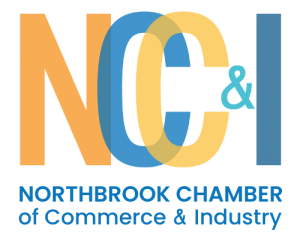Tips for Cutting Startup Costs Without Cutting Corners
Starting a business is often a tightrope walk between ambition and resources. You want a brand that feels polished, a product or service that works flawlessly, and a financial runway that doesn’t vanish overnight. The temptation to take shortcuts—buy cheaper parts, skip testing, under-invest in talent—can be strong. But those moves usually lead to bigger bills later. Instead, focus on cost-smart strategies that preserve quality, build trust, and keep you in the game for the long haul.
Start Lean, Validate Fast
One of the smartest ways to keep costs in check is to start lean and refine your offering as you learn. This means resisting the urge to build every possible feature before you have customers. Instead, design a “minimum viable” version of your product or service and gather feedback early. By doing this, you can validate the business model quickly and cheaply before committing major funds to a direction that may not resonate. This approach lets you redirect resources toward what customers actually value, reducing waste while increasing your odds of hitting the mark.
Negotiate Smarter With Vendors
Every recurring cost you carry—whether it’s raw materials, software subscriptions, or logistics—affects your runway. Many entrepreneurs don’t realize that vendor contracts are often negotiable, especially if you can offer predictable order volumes or faster payment terms. Taking the time to regularly renegotiate vendor contracts can lead to significant savings without downgrading quality. This is also the moment to consolidate suppliers or explore partnerships that give you bulk-buy advantages.
Leverage Reviews for Smarter Service Choices
When selecting a business formation provider, ZenBusiness customer reviews can offer a grounded view of what to expect in terms of cost, service, and overall quality. These first-hand accounts highlight not only the strengths of a service but also any recurring issues, giving founders a clearer picture before they commit funds. By studying detailed experiences from other entrepreneurs, it’s easier to spot hidden fees, slow processing times, or inconsistent support. This makes it possible to choose a provider that delivers professional results without inflating the budget or risking compliance missteps.
Automate and Outsource Wisely
If your in-house team is spending hours on tasks that don’t directly drive revenue, you’re burning through both payroll and opportunity. The modern startup has access to affordable automation tools for scheduling, invoicing, customer communication, and more. Likewise, skilled freelancers and agencies can handle specialized work without the overhead of a full-time hire. Strategic founders outsource non-core tasks affordably so their teams can focus on what moves the needle. The trick is to outsource roles where results are easy to measure and the learning curve is minimal.
Keep Quality High Through Preventive Maintenance
When you’re trying to save money, it’s tempting to push equipment and systems to their limits before fixing them. But deferred maintenance almost always costs more in the end—both in repair bills and lost productivity. For example, startups using manufacturing tools, delivery vehicles, or even critical software systems can avoid expensive breakdowns by scheduling regular check-ups and updates. Applying predictive maintenance to avoid failures doesn’t just prevent costly emergencies; it also extends the life of your assets.
Invest Smartly in Equipment
Brand-new equipment can be alluring, but it’s not always necessary. Many startups get a competitive edge by sourcing high-quality used or refurbished tools, furniture, or technology. This isn’t about cutting corners; it’s about finding value without sacrificing performance. Look for trusted suppliers who inspect and warranty their gear so you’re protected. Often, you can buy quality used equipment when possible and reinvest the savings into marketing, R&D, or other growth areas.
Bootstrap with Services Before Scaling Products
If you’re entering a market that eventually requires significant product development, consider starting with a service-based offer in the same space. Services typically have lower upfront costs, allow you to build relationships with your target customers, and generate cash flow that can fund product development later. This way, you can bootstrap early with service-first models rather than relying solely on loans or investor capital. It’s a strategy that keeps ownership in your hands and avoids the pressure to scale too quickly.
Reducing startup costs without sacrificing quality isn’t about doing less—it’s about doing what matters most, more efficiently. Starting lean lets you learn before you over-invest. Vendor negotiations protect your margins. Automation and outsourcing keep your team focused on core goals. Preventive maintenance avoids costly downtime. Smart equipment sourcing maximizes the value of every purchase. And bootstrapping through services can give you the breathing room to grow without giving away equity too soon. These all have one thing in common: they treat cost reduction as a form of quality control.
Discover the benefits of joining the Northbrook Chamber of Commerce & Industry and connect with a vibrant community dedicated to fostering business growth and community well-being!This Exclusive Offer is promoted by Northbrook Chamber of Commerce & Industry.

